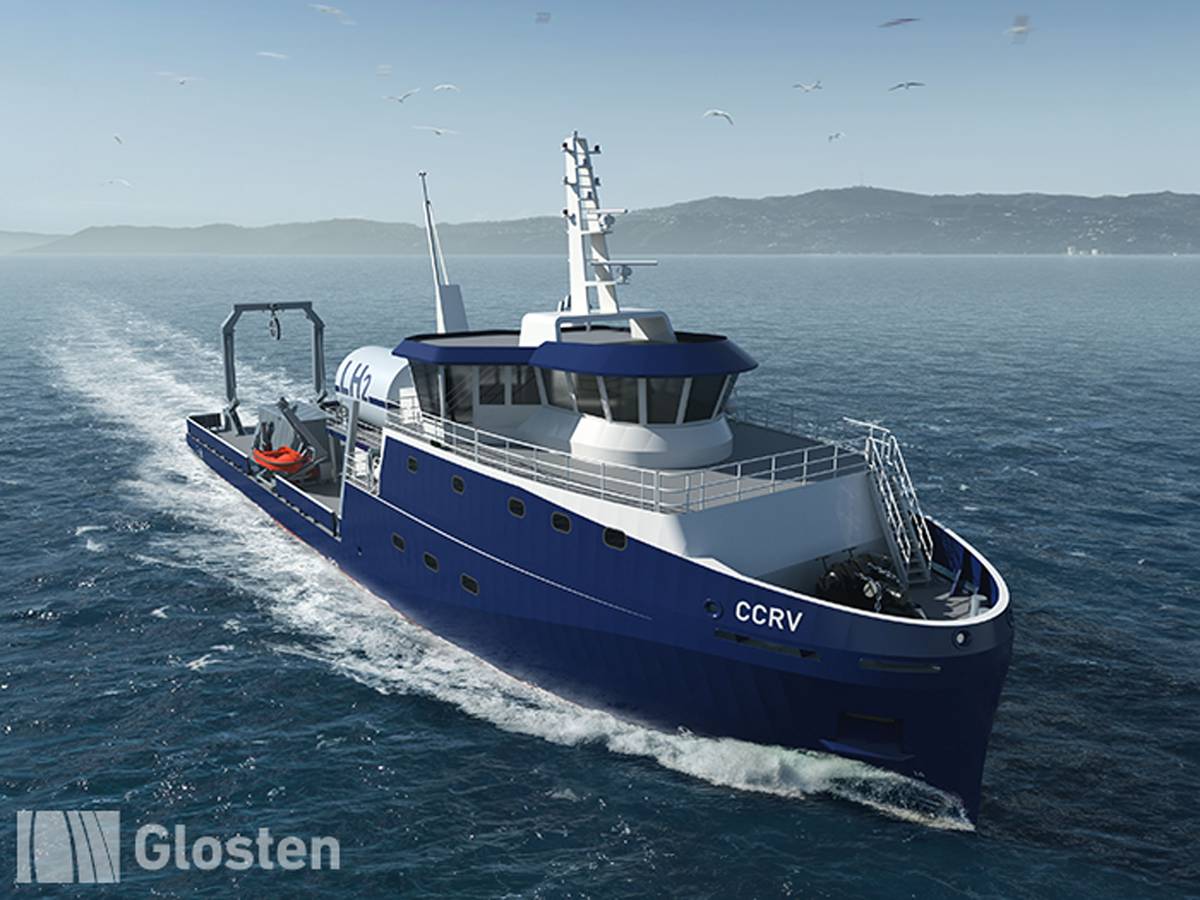Glosten Receives Approval for UC San Diego's Hydrogen-Hybrid Research Vessel
Key Ideas
- Glosten obtained Approval in Principle from ABS for UC San Diego's hydrogen-hybrid research vessel, designed for zero-emissions operation.
- The vessel will feature a propulsion system using hydrogen fuel cells, meeting ABS safety standards and advancing hydrogen-fuel-cell propulsion for coastal vessels.
- The project aims to minimize environmental impact, enable marine ecosystem studies, and aligns with Scripps Institution of Oceanography's values for sustainability.
- The CCRV will operate on emissions-free hydrogen fuel cells for 75% of its missions, showcasing the feasibility of hydrogen-powered research vessels.
Glosten has been granted Approval in Principle (AIP) by the American Bureau of Shipping (ABS) for the innovative design of UC San Diego's new hydrogen-hybrid Coastal-Class Research Vessel (CCRV). This vessel, to be utilized by Scripps Institution of Oceanography, will incorporate a cutting-edge propulsion system powered by hydrogen fuel cells, ensuring zero-emissions operation. The collaboration between Glosten and Siemens Energy resulted in the successful completion of the CCRV's preliminary design earlier this year. The project faced challenges in complying with complex regulations, including being CARB-compliant and ABS-classed, as well as meeting SOLAS standards. By achieving AIP, the design has been recognized for meeting safety and technical requirements, affirming the viability of hydrogen-fuel-cell propulsion for medium-sized coastal vessels.
The CCRV concept originated from a feasibility study conducted in 2018 by Glosten, Scripps Oceanography, Sandia National Laboratories, and DNV. This study assessed the feasibility of the Zero-V concept, which aims to utilize fuel cells and liquid hydrogen for power, aligning with Scripps' environmental criteria. The project team overcame regulatory hurdles and safety concerns related to hydrogen systems through extensive collaboration and risk assessment workshops.
The CCRV will enable Scripps researchers to conduct marine ecosystem studies along the Californian coast while operating on hydrogen fuel cells for 75% of its missions, showcasing a commitment to environmental sustainability. The project is now progressing towards the functional-level design stage and initiating the construction procurement process. Bruce Appelgate, associate director of Scripps, emphasized the vessel's role in serving scientific needs while minimizing environmental impact, reinforcing Scripps' dedication to environmental stewardship. The envisioned vessel represents a significant advancement in marine technology, demonstrating the feasibility and benefits of hydrogen-powered research vessels.
Topics
Fuel Cells
Environmental Impact
Zero Emissions
Marine Technology
Hydrogen Fuel Cells
Research Vessel
Regulatory Compliance
Marine Research
Latest News
